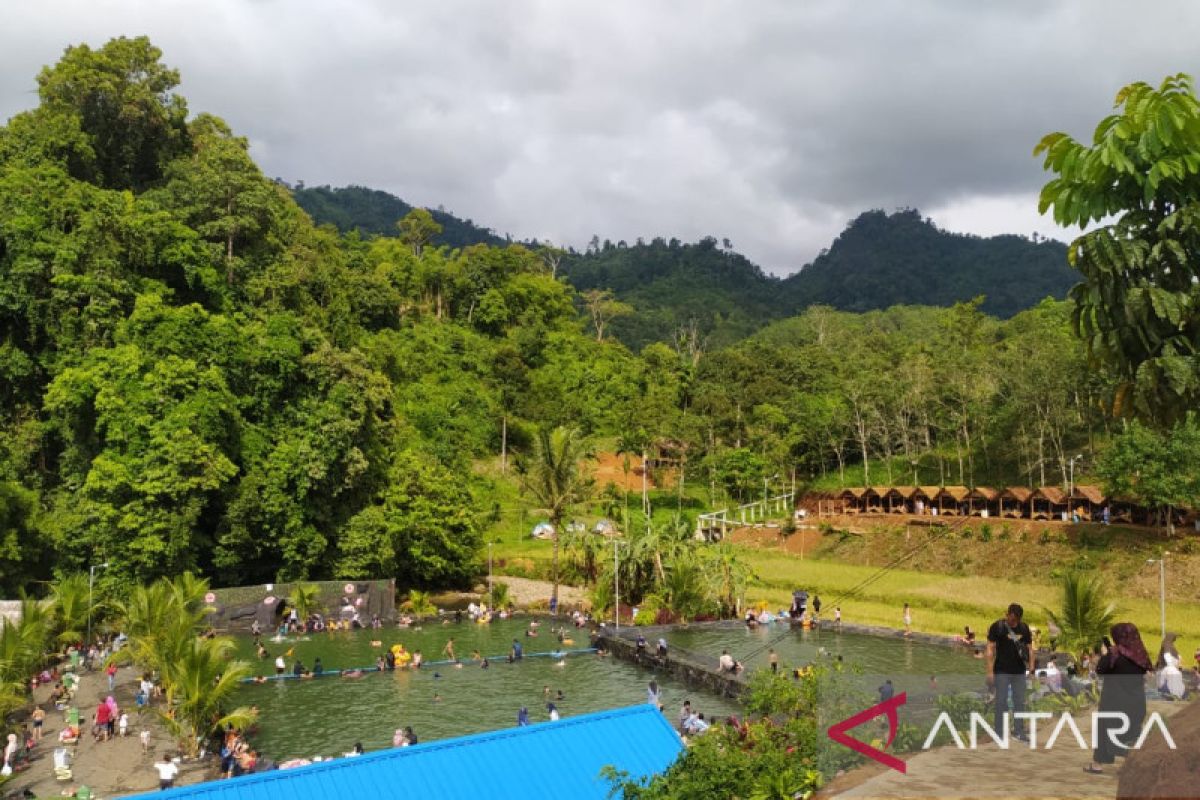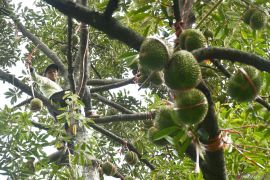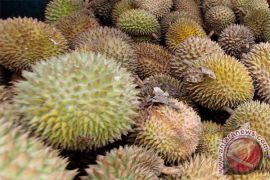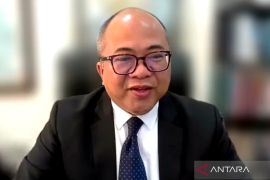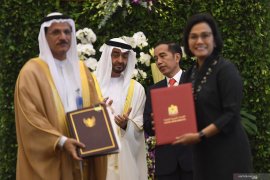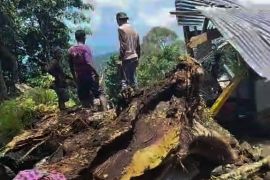Although, initially, I do not have any plan to create any recreational spot.Bengkulu (ANTARA) - Kampoeng Durian (Durian Village), an agro-tourism destination located in Datar Lebar Village, Taba Penanjung Sub-district, Central Bengkulu District, Bengkulu Province, has improved the community's economy and encouraged development of the local village.
Durian is a large round fruit, with a strong odor and thorn-covered thick rind. The fruit is native to Indonesia, Malaysia, the Philippines, and Thailand.
The most common durian cultivated in Indonesia is the Durio zibethinus species native to Sumatra and Kalimantan.
In addition to durian, the residents of Datar Lebar Village sell other agricultural products along the road to the tourism attraction.
Hence, the establishment of Kampoeng Durian has bolstered the economy of the surrounding community, who earlier sold their crops to wholesalers at a lower price.
Owing to the agro-tourism area, they can sell their products at a higher price. For instance, usually they sell small-, medium-, and large-sized durians for Rp5 thousand, Rp10 thousand, and Rp15 thousand respectively.
In the tourism attractions, a small-sized fruit is sold at about Rp10 thousand to Rp15 thousand, while Rp20 thousand to Rp30 thousand for the medium-sized ones, and Rp35 thousand to Rp50 thousand for the large-sized ones.
Although several spots of Kampoeng Durian are still under construction, the number of people coming to spend their weekends at the site has steadily increased.
Initiator of the development of the tourism area, Mardian Farizal, is actually the owner of a 14-hectare farming area in the village.
Farizal spoke of being inspired by scenic views of the mountains and rivers surrounding his durian plantations to establish the Kampoeng Durian.
"Although, initially, I did not have any plan to create any recreational spot,” he affirmed.
Related news: Indonesia optimistic Singaporeans' visits to Lagoi will increase
Development of the tourism attraction was started in mid-2020 on a two-hectare plot of land.
A visitor from Bengkulu City, Gustari Johandari, stated that Kampoeng Durian is a cozy vacation destination on account of the landscape.
"In addition, there is a public swimming pool in the area," he stated.
Furthermore, the visitors can wait for ripe durians to fall or directly pick the fruit from the tree, although the activities can only be conducted during the harvest season from December to February.
Visitors must travel from Bengkulu City for about 30 kilometers (km) to Bajak I Village, Taba Penanjung Sub-district, Central Bengkulu District, to get to Kampoeng Durian.
From the village, the tourists can continue their journey to Datar Lebar Village for approximately 20-25 minutes.
Related news: Maluku to turn former VOC governor office into presidential palace
The road to Datar Lebar Village has been partially paved with asphalt. Meanwhile, some parts of the street are only covered with gravel. However, the route is fairly adequate to be used.
On arrival at the entry of Kampoeng Durian, visitors keen to enjoy public bathing must go downhill since the site is located at a valley.
In addition to durians, which has become the tourism area’s icon, Farizal has planned to plant several other fruits, such as avocados, oranges, and coconuts.
Hence, the visitors are not only able to enjoy the view but can also relish a wide variety of fresh fruits.
Related news: Yogyakarta braces for tourist surge on long weekend
Riverside pool
In addition to the shady trees and quality durian fruits, Kampoeng Durian provides a riverside public pool with splendid natural scenery.
There are three tiers of the pool. Thus, visitors can swim freely while enjoying the view of the surrounding rice fields and green hills.
Furthermore, the river is calm and shallow, so visitors can also take their children to bathe and play in the river.
Resting hut
Farizal noted that the agro-tourism area also has several resting huts that can be used for free except for the ones located near the swimming pool. Visitors must pay Rp10 thousand per hour to occupy those huts.
The tariff is imposed only for occupying the huts surrounding the pool to keep the facility from becoming overly crowded.
Currently, Kampoeng Durian has 22 huts, of which 10 are located near the pool, while the rest were built across the river -- right on the edge of the rice fields.
Empowering the locals
Farizal stated that currently, his side is employing 15 workers hailing from several villages in the Taba Penanjung Sub-district to manage the tourism site.
The attempt aims to improve the local people's economy as well as to ensure the visitors’ safety while exploring the site since the workers have been familiar with the location, he remarked.
In addition to employing local residents, his side also assists in developing the public infrastructure of Datar Lebar Village, such as the roads.
Related news: Busan Tourism Organization releases Busan tour promotional video 'Eyheymahamo' showing the vibe of Busan
Furthermore, Farizal plans to help in building other village infrastructure to increase the popularity of Datar Lebar Village among the wider community.
Head of the village, Budi, remarked that along with the development of Kampoeng Durian, the road in his village has also been improved gradually.
Prior to the establishment of Kampoeng Durian, he noted that the quality of the street was quite poor, as it was only a clay road without any pavement.
However, currently, the street’s condition has improved, with additional layers of stone and sand, although it has not been paved well by asphalt.
"Although the improved road is not the main one, still, it has greatly helped us," the village head added.
Agriculture Minister Syahrul Yasin Limpo stated that the export value of the agriculture sector had continued to grow.
In 2021, the export value of agricultural products reached Rp625.04 trillion, an increase of 38.68 percent as compared to the export value in 2020.
Related news: Ministry to consider reactivating visa on arrival scheme in Bali
Meanwhile, General Secretary of Statistics Indonesia (BPS) Atqo Mardiyanto remarked that the sector had contributed 13.28 percent of Indonesia’s gross domestic product (GDP) in 2021.
Mardiyanto affirmed that the agricultural sector's growth in 2021 was bolstered by the increasing yields of horticultural products, such as banana, with an increase by 6 percent; pineapple, 19.50-percent growth; and durian, 21.25-percent rise.
According to the BPS data, Indonesia had produced a total of 1,133,195 tons durians in 2020. East Java Province is the most productive region by contributing 24.33 percent of the total production.
Related news: Vice minister underscores importance of waste handling for tourism
Related news: Military, police officers should have digital capabilities: President
Editor: Fardah Assegaf
Copyright © ANTARA 2022
